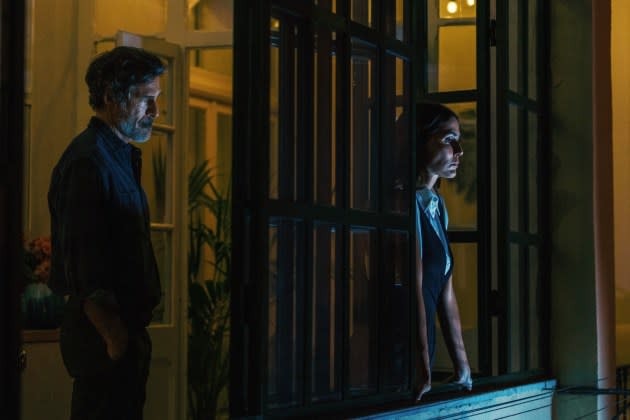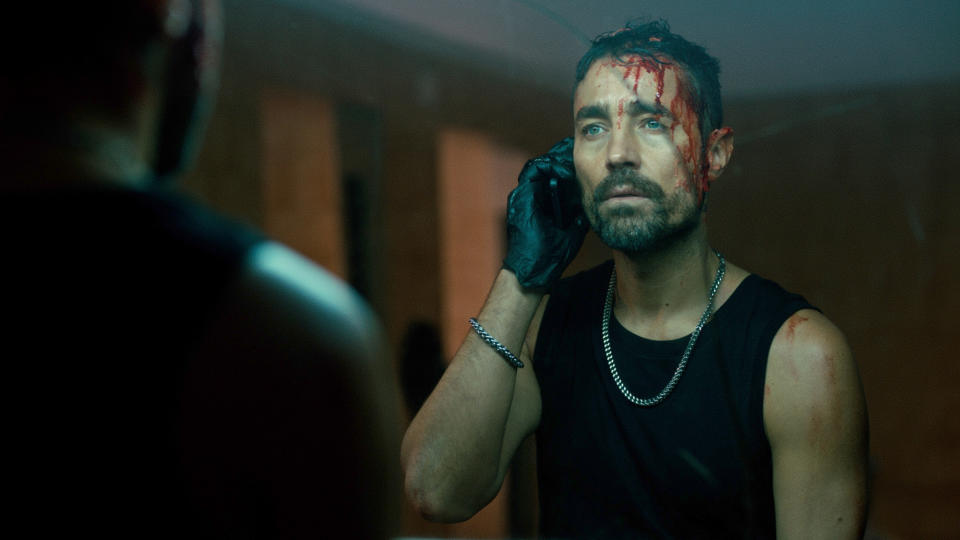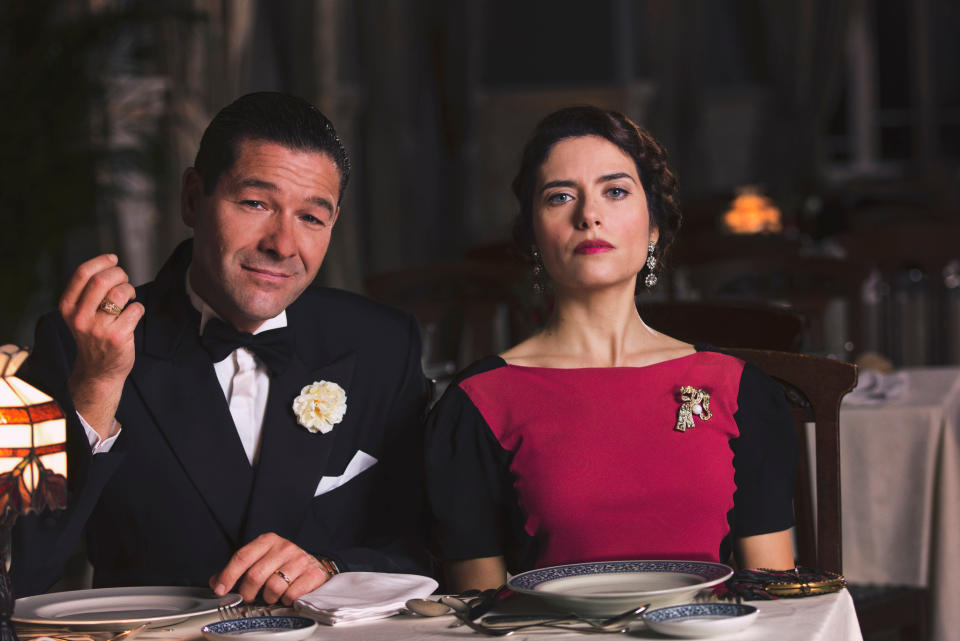Portuguese TV Fiction Moves Into Premium Scripted, Expands Co-Production Path

The Portuguese TV fiction sector is experiencing growth as it garners international visibility through co-productions and alliances with streamers and foreign broadcasters.
With a small domestic market – some 10 million inhabitants – Portuguese TV production is making a virtue of necessity. The region possesses a diversity of TV fiction offerings, ranging from commercial telenovelas to an increasing number of premium TV dramas, and is rapidly opening up to international partnerships.
More from Variety
Portugal's Creator-Driven Animation Industry Shines as Annecy's Country of Honor
Onza Distribution Sells Hit Portuguese Telenovela 'Cacao' to Mediaset in Spain (EXCLUSIVE)
In 2015, local indie producers got into TV fiction series via public broadcaster RTP, a driving force behind the sector. That was then followed by private TV operators and later by global streamers.
“Portugal has changed a lot in the last few years,” says José Eduardo Moniz, general manager at TVI, the country’s top private broadcaster.
“The transposition into Portugal of the European Union’s Audiovisual and Media Services Directive created the conditions for investment in local production,” argues Pedro Lopes, content director and executive producer at powerhouse SPi.
Universal Stories
“For some years now, we have been investing in stories that might be recognized as genuinely Portuguese, although universal,” Moniz says.
In a milestone move in recent Portuguese TV fiction, “Rabo de Peixe” (“Turn of the Tide”), a drug thriller inspired by real-life facts, produced by Ukbar Filmes, spent two weeks on Netflix’s global top 10 most watched non-English series list.
Increasing International Potential
The public broadcaster RTP develops fiction projects with local indie producers. That’s the case of this year’s thriller series “Matilha” (“Dogpack”), entirely a national production, acquired by Prime Video.

Meanwhile, for “Codex 632,” RTP partnered with Brazil’s Globoplay, gathering financing from the Portuguese Film Commission.
Also, 15 episodes of the three seasons of the high-profile thriller series “Operação Maré Negra,” teaming RTP with Prime Video and several Spanish regional broadcasters, were simultaneously produced in Portugal, Spain and Brazil.
“The objective now is to increase the quality and international potential of projects more than to increase the number of productions,” Fragoso says.
“Our current focus rests on ensuring a yearly production of 10-to-12 series of four-to-eight episodes, with diverse and stimulating themes for our linear and digital viewers,” he explains. “Associating with ambitious international co-productions allows the development of projects with a greater financial scale and an initial guarantee of external broadcasting.”
The Iberian connection for TV fiction production has consolidated deep shared roots in recent years.
In 2022, RTP co-produced noirish thriller “Sequía,” an AMC Networks Intl. Latin America pickup, its first-ever fiction co-production with Spanish broadcaster RTVE. At the same time, “The Last Wolf,” a drug lord crime series in partnership with Portugal’s SPi and Caracol Studios, won the RTVE Development Award at Conecta Fiction.
TVI Reinforces its Fiction Investment
Aware of recent trends, TVI, part of Grupo Media Capital, Portugal’s largest media group and owner of production house Plural Entertainment, is reinforcing its fiction investment.
“Besides telenovelas, we chose to bet on series, short or medium. All genres were contemplated,” says TVI’s Moniz.
To be able to fulfill its plans, TVI has opened itself to the market, working with national and international partners. “This last aspect represented a huge step,” Moniz recognizes.
Highly Competitive in All Areas
“Portugal is today a highly competitive market in all areas,” says Geraldine Gonard. “Despite its small number of inhabitants, Portugal offers cost-effective production rates, typical Southern European creativity, quality professionals, wonderful filming locations and tax incentives.”
“Portuguese TV fiction has evolved a lot. There are new talents and production companies open to working on co-productions and reaching platforms, something that took a while. But now it’s living a good time,” says José Machado, Portuguese film and TV expert and a session co-ordinator at Conecta’s Focus Portugal.
SPi’s Intrinsic Co-production Strategy
Co-production is an intrinsic strategy of private production house SPi, producer in 2021 of “Gloria,” the country’s first Netflix Original series.
“SPi’s core business is international co-productions and premium content production. To that end, we firmly believe in organic co-production based on storytelling,” argues SPi’s Pedro Lopes.
Powering into premium TV drama, SPi also produces female empowerment heist thriller “Vanda,” a Hulu acquisition, in partnership with Legendary Ent. and Spain’s La Panda, selected by the Berlinale Series Market in 2022.
SPi has worked with Netflix, Max, Prime Video and Globoplay, and co-produced “Auga Seca” (“Dry Water”), a pioneering drive into premium TV co-production, linking up with Galicia’s Portocabo (“Hierro,” “Rapa”) in Spain, whose first two seasons aired on HBO, RTP and Spain’s regional pubcaster TVG.
Lopes adds: “Some contents are clearly destined to be the platforms’ originals, but we still believe in the good old tradition of co-production between the broadcasters in each territory and international sales distribution.”
The Spanish Connection, Via Galicia
Portuguese TV fiction growth is boosting already long-term links with Spain, especially in Galicia.
“The alliance between Portocabo and the Portuguese audiovisual sector is born from a historical, cultural connection, which makes us feel at home,” explains Alfonso Blanco, CEO at A Coruña-based Portocabo.
Portocabo has also co-produced hit series “Vidago Palace,” a “Downton Abbey”-style drama globally distributed by Banijay, in partnership with Hop!.

“The Portuguese audiovisual market is experiencing a moment of maturation. We wanted to place value on our experience and make these alliances stronger with the creation of Portocabo Atlántico, which is developing several projects that will soon come to the market,” Blanco says.
The Return of ‘Morangos’
“We produce with our own internal structure, but also hand-in-hand with local producers,” explains José Eduardo Moniz at TVI. “In order to enlarge the dimension of our market and contemplate the creativity and ambition of Portuguese talent, we feel very interested and embrace all types of cooperation with foreign partners, namely streaming platforms.”
The sequel to 2003’s hit youth series “Morangos com Açúcar,” this time teaming with Prime Video, which also hosts the series in Spain, marks one of TVI’s recent standout TV productions.
TVI is also partnering with Prime and See My Dreams to adapt the top Spanish comedy hit series “La que se avecina.”
A Portuguese Style in TV Fiction?
As Portugal’s TV fiction reaches international visibility, the question remains: “Is there is a distinctive Portuguese style in TV fiction production?”
“I would say yes,” RTP’s José Fragoso explains. “On one hand, given the small size of the Portuguese market, indie producers operate in a difficult environment in terms of financing, which requires a lot of creativity and energy to achieve objectives with smaller resources.”
“On the other, most Portuguese producers dedicate themselves very passionately to each new project, and the creative and technical teams really work as true teams throughout the entire production process,” he adds. “This reality generates final content with an overall quality well above average, worked with rigor and passion, regardless of whether it is a historical series or a modern thriller.”
Best of Variety
Sign up for Variety’s Newsletter. For the latest news, follow us on Facebook, Twitter, and Instagram.


